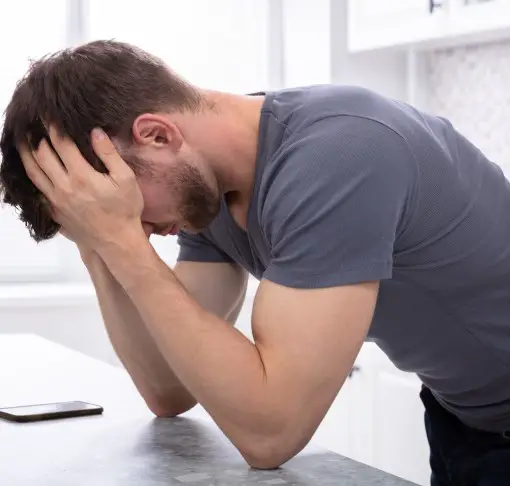
Can sleep apnea cause bipolar? – What we know and 13 practical remedies
By Jason Wooden, PhD | February 13, 2023
The exact cause and effect relationship between sleep apnea and bipolar is not well understood. However, sleep apnea patients are 2-3 times more likely to diagnose with bipolar and people with mood disorders appear to be more at risk for sleep apnea. Fortunately, there are plenty of things you can try including light therapy, lifestyle changes, CPAP, and various other remedies.
What’s really at stake with sleep apnea and bipolar
If you’re curious whether there’s a connection between sleep apnea and bipolar, you’re not the only one.
With over a billion sleep apnea sufferers worldwide, there’s likely more than a few asking the same. In fact, search online and you’ll find frustrated people in various forums asking about the sleep apnea – bipolar connection.
Nonetheless, whether it’s sleep apnea triggering bipolar attacks or bipolar worsening your sleep apnea symptoms, it’s all the same – double the frustration.
That’s because sleep apnea all by itself is bad enough.
Waking up every hour throughout the night, frequent trips to the bathroom, complaints of loud snoring…
When morning finally comes you feel as if you haven’t slept at all, struggle with pounding headaches, and you spend the day as a sleep-deprived zombie.
(There’s also the sluggish brain, forgetfulness, moodiness, low energy, poor communication, and the strain sleep apnea puts on relationships.)
Likewise, living with bipolar can be challenging enough too.
The mood swings can make it tougher to handle everyday tasks, attend school, perform at work, and maintain relationships.
When you mix sleep apnea with bipolar, you could be looking at a sleep-deprived zombie on mood swings. It’s even harder to sleep, harder to function, and harder to live your life.
That’s a lot at stake.
However, it isn’t all doom and gloom. There’s definitely reason for hope.
Like I said, you’re not the first who may up against sleep apnea AND bipolar.
Let’s take a look at what we know and some practical remedies that can make a difference.
Sleep apnea CAN increase your risk for mental health challenges
Sleep apnea is a condition in which your breathing is repeatedly interrupted during sleep. The most common type, obstructive sleep apnea (OSA), occurs when muscles in the upper airway relax too much.
This causes the airway to narrow and restricts the flow of oxygen to the brain. As the body becomes oxygen deprived, your brain arouses you out of deep sleep into a lighter sleep to resume breathing.
(The loss of deep sleep is why you wake up feeling as if you haven’t slept at all.)
It turns out your mind, brain, behaviors, and body can interact in powerful ways that affect health and wellness.
In fact, there’s a strong link between poor sleep, sleep apnea, and mental health challenges.
Stress and anxiety are among the most common causes of poor sleep. Sleep-deprived people are more at risk for anxiety and depression.
And symptoms of anxiety and depression are prevalent in patients with OSA.
One study found that over 60% of OSA patients were experiencing symptoms of anxiety and depression. Another study estimated that OSA patients were more than 3 times more at risk for anxiety and depression.
So, there’s definitely a connection between sleep apnea and mental health challenges.
Unfortunately, anxiety and depression can worsen sleep which means you may enter into a downward spiral if you’re not careful.
Can sleep apnea REALLY cause bipolar?
Now, that you know about the link between sleep apnea and mental health, it’s not too crazy there would be a link to bipolar too.
So, can sleep apnea really cause bipolar?
Researchers are still teasing out the various ways in which sleep apnea affects the brain and mental health. However, the research so far is showing is that there’s definitely a connection.
A Korean study of 985 individuals found during a 9-year follow up that people with sleep apnea were 2 to 3 times more likely to get a bipolar disorder diagnosis as compared to people without sleep apnea.
An even bigger Taiwanese study followed 5,000 people with sleep apnea and more than 27,000 people who did not have the condition. They found the same – sleep apnea patients were 2 to 3 times more get a bipolar disorder diagnosis.
Now, that you know about the link between sleep apnea and mental health, it’s not too crazy there would be a link to bipolar too.
So, can sleep apnea really cause bipolar?
Researchers are still teasing out the various ways in which sleep apnea affects the brain and mental health. However, the research so far is showing is that there’s definitely a connection.
A Korean study of 985 individuals found during a 9-year follow up that people with sleep apnea were 2 to 3 times more likely to get a bipolar disorder diagnosis as compared to people without sleep apnea.
An even bigger Taiwanese study followed 5,000 people with sleep apnea and more than 27,000 people who did not have the condition. They found the same – sleep apnea patients were 2 to 3 times more get a bipolar disorder diagnosis.
Can bipolar cause sleep apnea?
Okay, you may also be wondering the oppositive – whether bipolar can cause or make sleep apnea worse.
A study of 72 overweight individuals with bipolar disorder found that over half were at high-risk for sleep apnea. (This is not too surprising since weight is a major risk factor for sleep apnea.)
Researchers have also found that male military veterans struggling with PTSD and mood disorders are more likely to experience sleep apnea.
So, people struggling with mood disorders such as bipolar appear to be more at risk for sleep apnea.
In fact, a meta-analysis of the combined data from 12 studies found that 25% of people with bipolar disorder have sleep apnea.
So, how are sleep apnea and bipolar connected?
Even though they’ve been linked, the exact cause and effect relationship is not well understood. So, if this is looking to you like a chicken and egg situation, experts feel the same way.
As far as to how they could be connected, they do meet at the brain and sleep.
Sleep apnea robs you of deep restful sleep and people who sleep poorly are moodier. You’re also more likely to struggle with anxiety and depression.
One study found that sleep loss triggered mood episodes in women with bipolar.
Many mental health challenges make it harder to sleep and sleep disturbance is a core symptom of bipolar. Sleep deprivation is one of things that can worsen sleep apnea symptoms.
So, there’s likely a bidirectional relationship between sleep apnea and bipolar.
Can CPAP help bipolar?
While this hasn’t been directly studied, there are anecdotal reports online in forums in which people say their bipolar symptoms improved after starting CPAP.
This is not too crazy since anything you do to improve your sleep may help since sleep loss is believed to be a trigger of mood episodes in some individuals.
So, if you’re someone struggling with both bipolar and sleep apnea, using a CPAP machine for sleep apnea treatment can help improve your sleep, mood, and other symptoms of bipolar.
Given everything that’s at stake it worth having a chat with doctor about it.
What to try if you’re worried sleep apnea is making bipolar worse
If you’re wondering whether there’s anything that can help if you suspect sleep apnea is triggering bipolar episodes, the good news is there are plenty of practical remedies you can try.
Many of the things you’ll find listed below are geared towards people with obstructive sleep apnea, since that’s the most common type. (Go here to learn more about the treatment options for central sleep apnea here.)
Among the things you can do are:
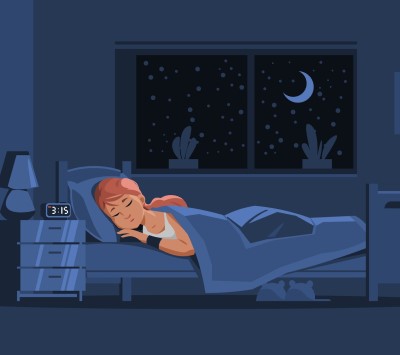
1) Make the most of your sleep opportunities
Since poor sleep can increase your risk for mental health challenges and may worsen bipolar, you need to get the best possible sleep you can every night. Start with sleep hygiene, the everyday habits can set the stage for deep restful sleep.
For better sleep hygiene, you should:
- Wake up and go to bed at the same time every day
- Exercise
- Avoid naps
- Avoid large meals, alcohol, and stimulants such as caffeine before bedtime
- Maintain a regular bedtime routine
- Avoid TVs, laptops, and other electronics near bedtime
- Keep your bedroom dark, cool, quiet, & relaxing
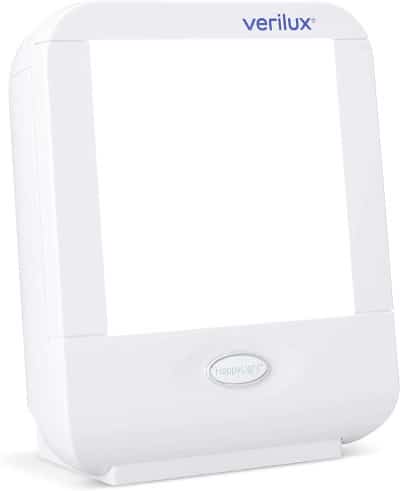
2) Try Light Therapy
Light therapy in the morning can help keep your sleep on track. A 2016 meta-analysis of the result from nine studies found that it can also help with bipolar depression when combined with other treatments.

3) Lifestyle changes
Avoid substances like alcohol that may relax your throat muscles causing more airway blockage and sleep apnea. Likewise, smoking can aggravate the airway, trigger inflammation, and worse sleep apnea.

4) Try an anti-inflammatory diet
Pay more attention to what you eat. A low carb anti-inflammatory diet may help since sleep apnea has been connected to excessive inflammation in the airway.
Eating healthier can also help with weight loss a major risk factor for sleep apnea.
Learn more:
Foods that help sleep apnea

5) Weight loss
About half of people with sleep apnea are overweight, even a small amount of weight loss can help improve symptoms.
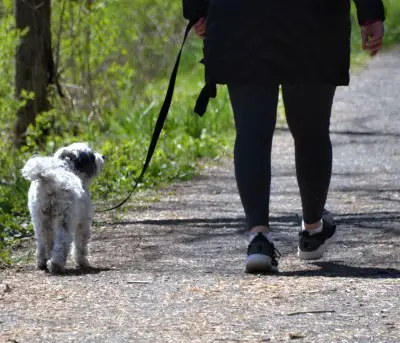
6) Exercise
Besides helping with weight loss, physical activity is known to promote deeper sleep and there’s evidence it can also help reduce sleep apnea breathing disruptions.
It’s also a natural mood booster!
Figure out something that will work for your situation whether it’s swimming, bicycling, jogging, or getting out for a walk. If you’re dealing with other health complications, be sure to check with a doctor so you don’t overexert yourself.
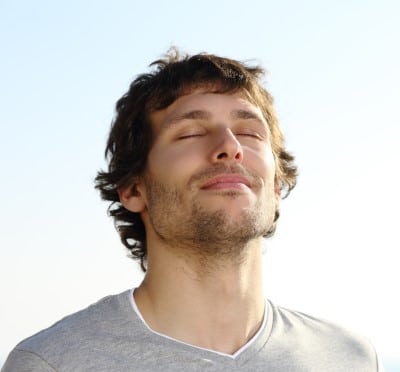
7) Mouth and throat exercises
Various exercises using your mouth and throat may help strengthen your airway and surrounding muscles. This can help the airway stay more open and improve sleep apnea symptoms.
Learn more:
Mouth & throat exercises for OSA (sleepfoundation.org)
Video: Throat exercises for snoring and sleep apnea

8) Sleeping on your side
Did you know that over half of obstructive sleep apnea sufferers have symptoms that are “position-dependent”? Their symptoms are worse if they sleep on their back.
Sleeping on your side instead of your back is another trick to help keep your airway more open. Some people even claim that sleeping upright in a recliner helps.
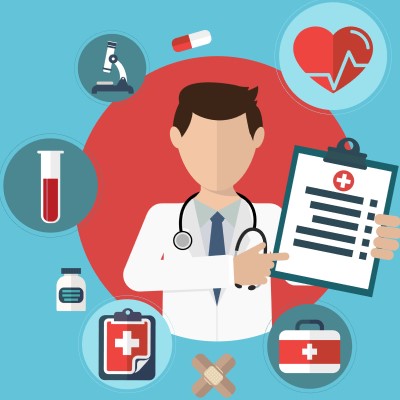
9) Get a check up
Too many people are unaware how many other medical issues can cause problems or worsen sleep. The list includes things like chronic pain, heartburn, cancer, dementia, and asthma.
A doctor can check for other underlying health issues, other sleep apnea risks factors, and make sure you’re doing the right things to get your sleep apnea under control.
This is also important if you’re not sure you have sleep apnea…
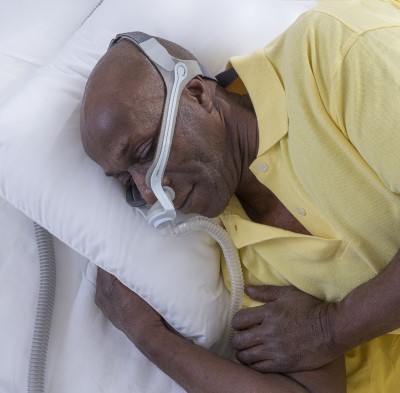
10) Try CPAP
Sleep apnea is pretty treatable. Sadly, 80 percent of the patients with moderate and severe sleep apnea go undiagnosed.
CPAP, continuous positive airway pressure, is one of the most effective treatments for sleep apnea so give it a try!
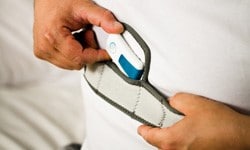
11) Try a CPAP alternative
If you find CPAP doesn’t work out for you, you’re not the first. Some people find the mask and blowing air uncomfortable. The good news is that there are more alternatives than ever before you can try.
Learn more:
The latest CPAP alternatives

12) Check your meds
Would you believe some medications may cause insomnia or worsen sleep apnea? It’s worth reviewing your meds with your doctor.
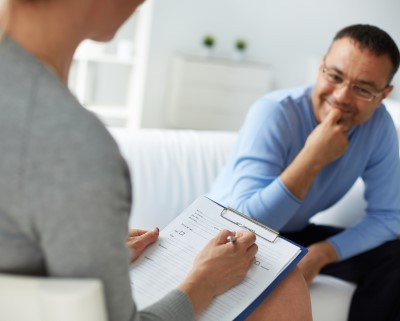
13) Counseling
I’ve already mentioned the link between sleep, anxiety, and depression. You want to avoid getting into a vicious cycle where things slowly spiral more out of control.
Counseling can help with both sleep and bipolar.
You may also be interested in:
Is sleep apnea bad? – 5 ways it can wreck your life
Does sleep apnea reduce life expectancy?
Does sleep apnea get worse over time?
Sleep apnea and daytime panic attacks
Can sleep apnea really cause IBS?
More remedies:
9 Things to try to treat sleep apnea yourself
The Latest Sleep Apnea Devices and Treatment Options ( Complete List)
Can acupuncture help sleep apnea?
Can sleep counseling help sleep apnea?
Sleeping upright with sleep apnea – What we know and 3 things to try
Foods that help sleep apnea – 5 to try for better sleep
Sources:
1. Estimation of the global prevalence and burden of obstructive sleep apnoea: a literature-based analysis, Lancet Respir Med. 2019 Aug; 7(8): 687–698.
2. Living Well with Bipolar Disorder, SAMHSA website
3. The Prevalence of Anxiety and Depression Symptoms in Obstructive Sleep Apnea. Cureus. 2020 Oct; 12(10): e11203.
4. Sleep apnea, psychopathology, and mental health care. Sleep Health. 2017 Aug; 3(4): 244–249.
5. Association of Obstructive Sleep Apnea With the Risk of Affective Disorders. JAMA Otolaryngol Head Neck Surg. 2019;145(11):1020-1026.
6. Sleep apnea is associated with an increased risk of mood disorders: a population-based cohort study. Sleep and Breathing volume 21, pages243–253 (2017)
7. Sleep apnea risk and clinical correlates in patients with bipolar disorder. Bipolar Disord. 2012 Sep; 14(6): 672–676.
8. Sleep apnea risk and clinical correlates in patients with bipolar disorder. Bipolar Disord. 2012 Sep; 14(6): 672–676.
9. Obstructive Sleep Apnea in Posttraumatic Stress Disorder Comorbid With Mood Disorder: Significantly Higher Incidence Than in Either Diagnosis Alone, 2018, psychiatrist.com
10. The prevalence and predictors of obstructive sleep apnea in major depressive disorder, bipolar disorder and schizophrenia: A systematic review and meta-analysis. J Affect Disord. 2016 Jun;197:259-67.
11. Sleep loss as a trigger of mood episodes in bipolar disorder: individual differences based on diagnostic subtype and gender. Br J Psychiatry. 2017 Sep; 211(3): 169–174.
12. Sleep Disturbance in Bipolar Disorder Across the Lifespan. Clin Psychol (New York). 2009 Jun; 16(2): 256–277.
13. Sleep loss as a trigger of mood episodes in bipolar disorder: individual differences based on diagnostic subtype and gender. Br J Psychiatry. 2017 Sep; 211(3): 169–174.
14. Light therapy in the treatment of patients with bipolar depression: A meta-analytic study. Eur Neuropsychopharmacol. 2016 Jun;26(6):1037-47.
15. Epidemiology of Obstructive Sleep Apnea: a Population-based Perspective. Expert Rev Respir Med. 2008 Jun 1; 2(3): 349–364.
16. The Relationship Between OSA and Mood Disorders, Cognitive Impairment
Connect with us:
About Us
Better Sleep Simplified® was founded as a place for you to get clear and well-researched information.
Our goal is to make sure you know about your options so that you take action sooner rather than later.
Check us out on YouTube:
Watch and Learn
Helpful sleep tips, interesting sleep facts and statistics you want to know about
Affiliate Disclosure
This site is a participant in the Amazon Services LLC Associates Program and other affiliate advertising programs designed to provide a means for sites to earn advertising fees by advertising and linking to them.
Important: BetterSleepSimplified.com is for informational purposes only and is not intended or implied to be a substitute for professional medical advice, diagnosis, or treatment. Always consult a physician for sleep and health concerns. See additional information.
